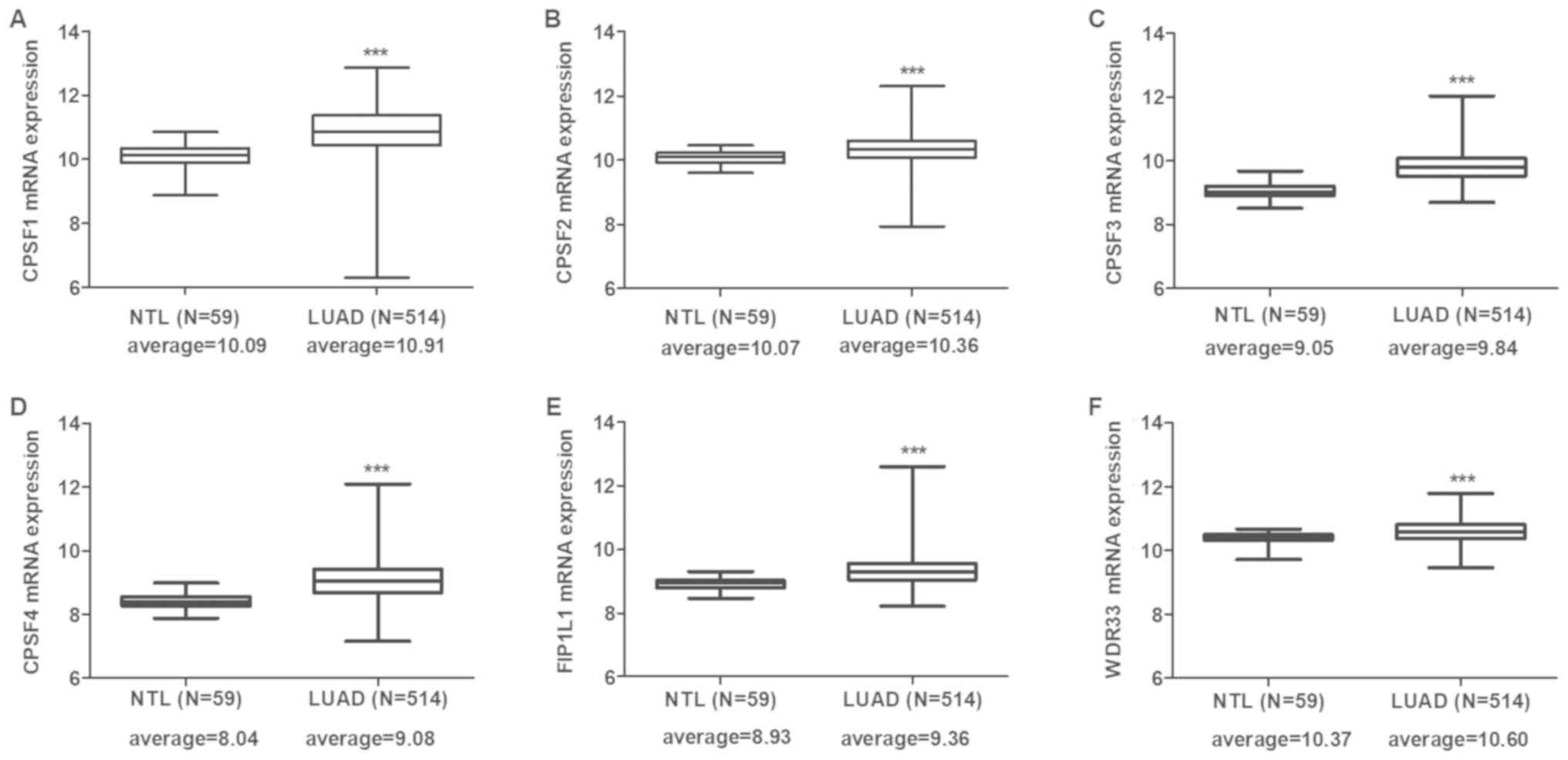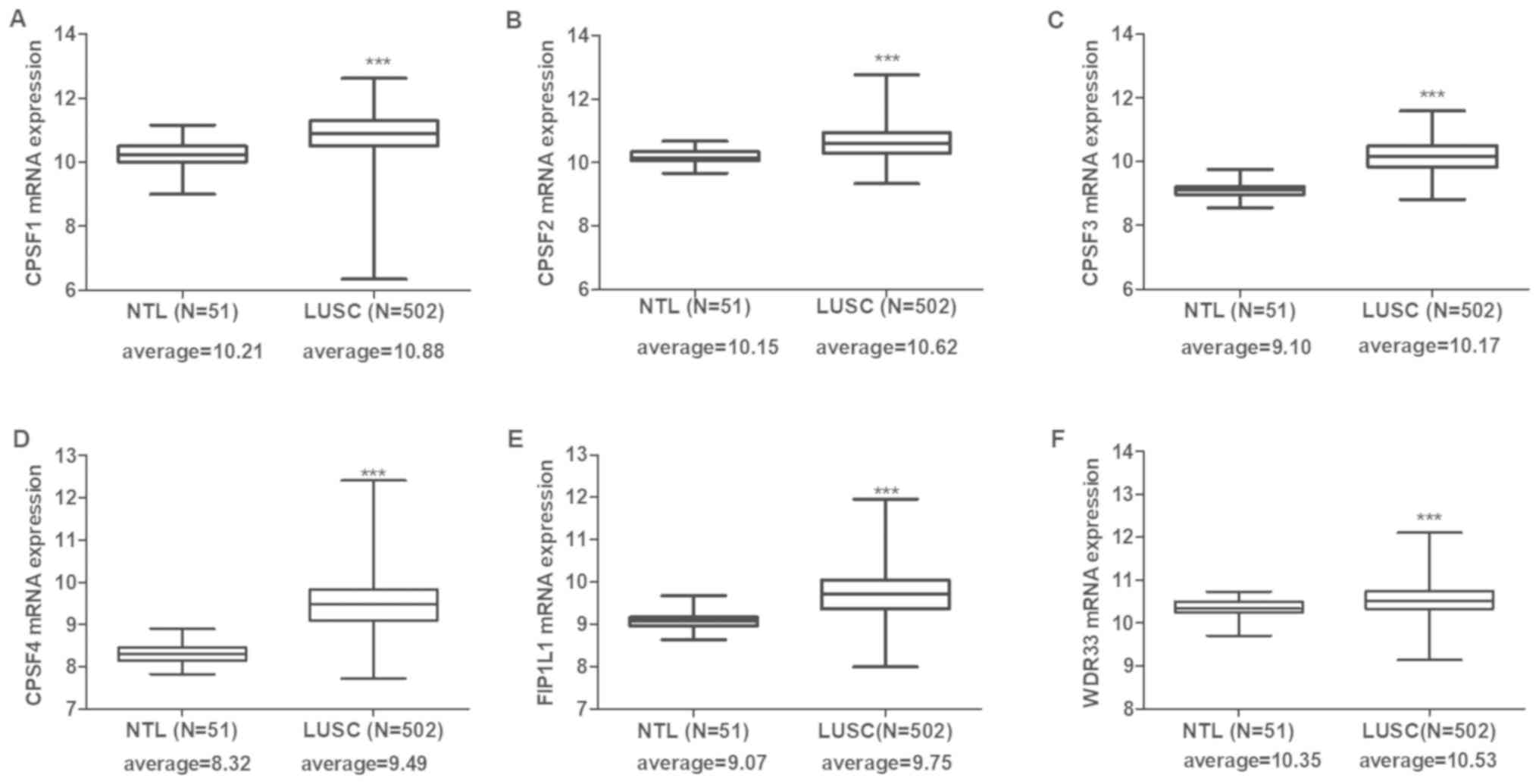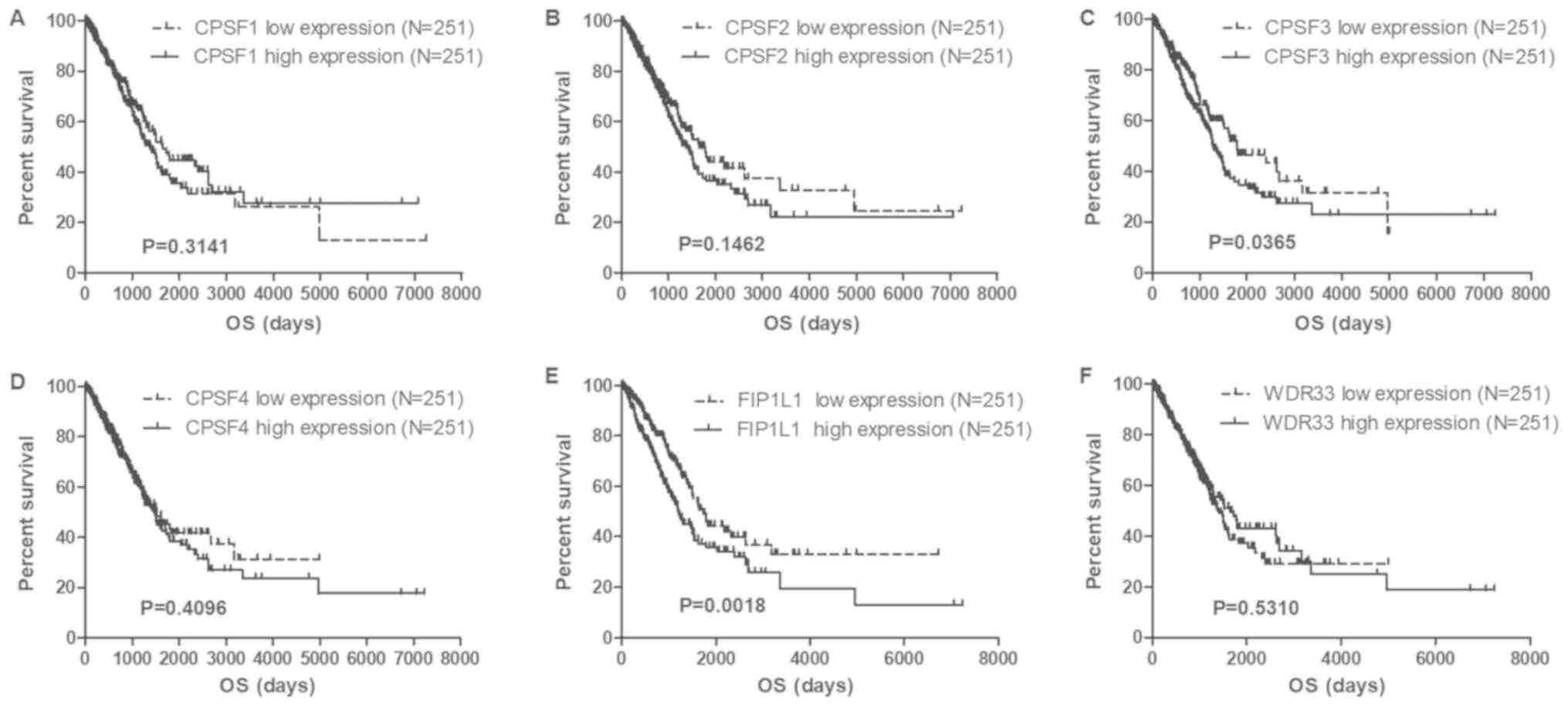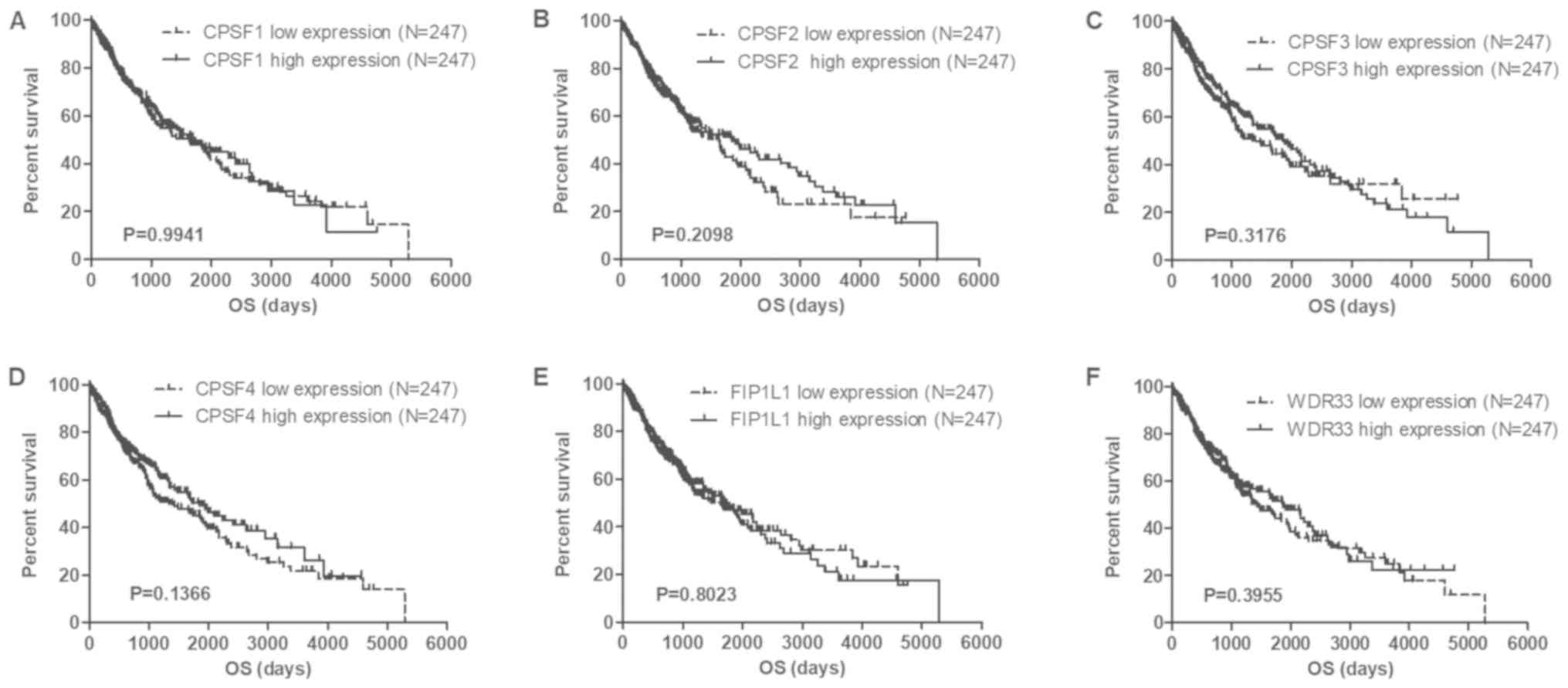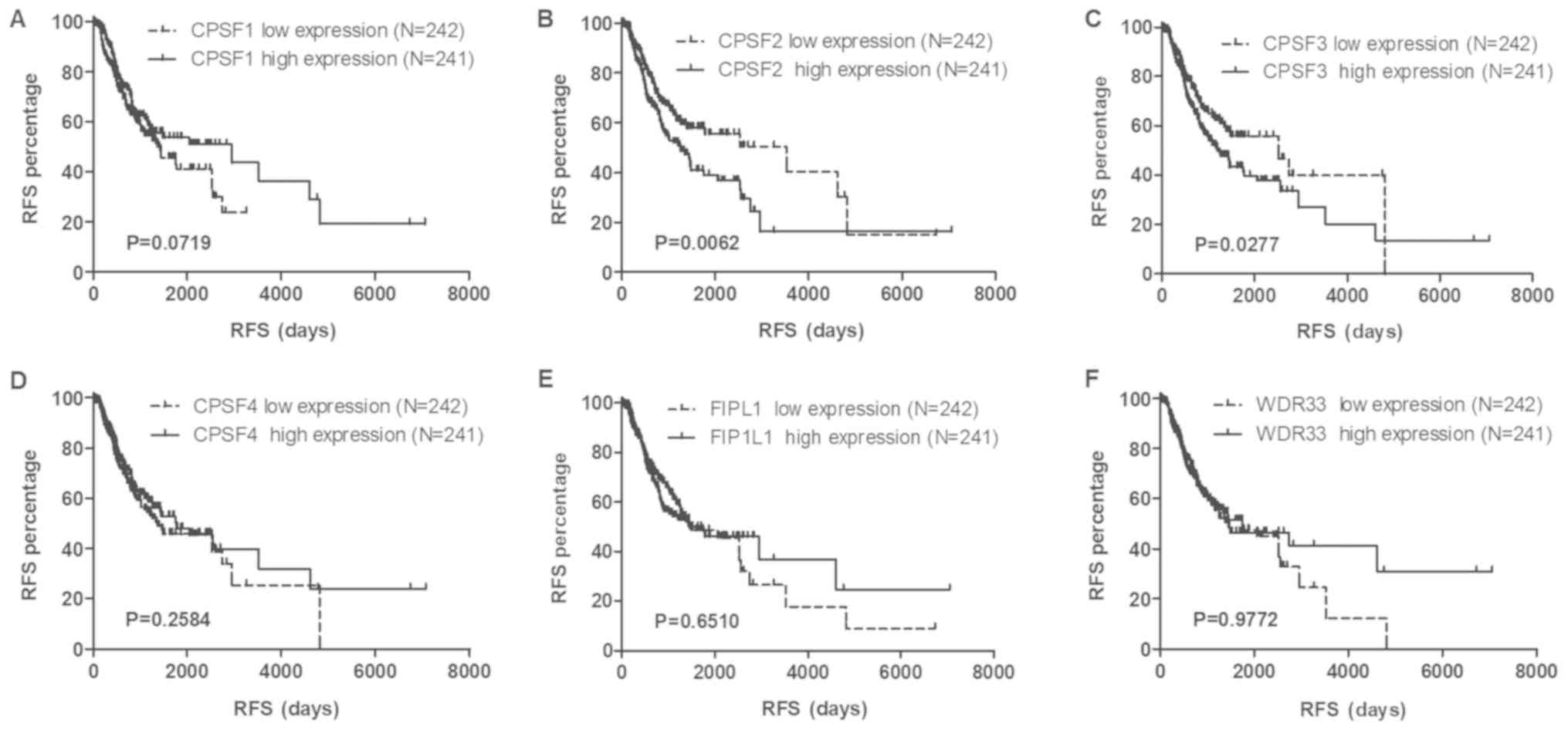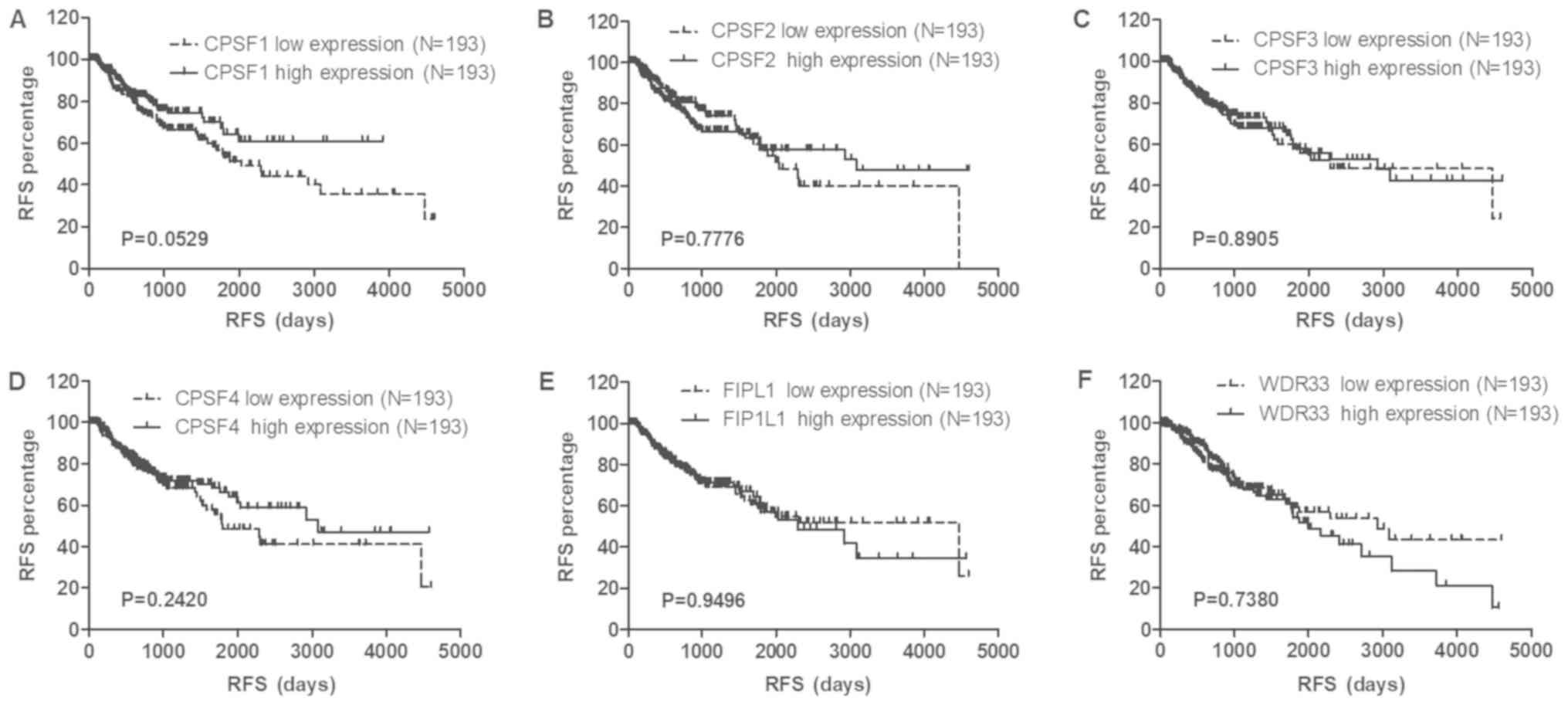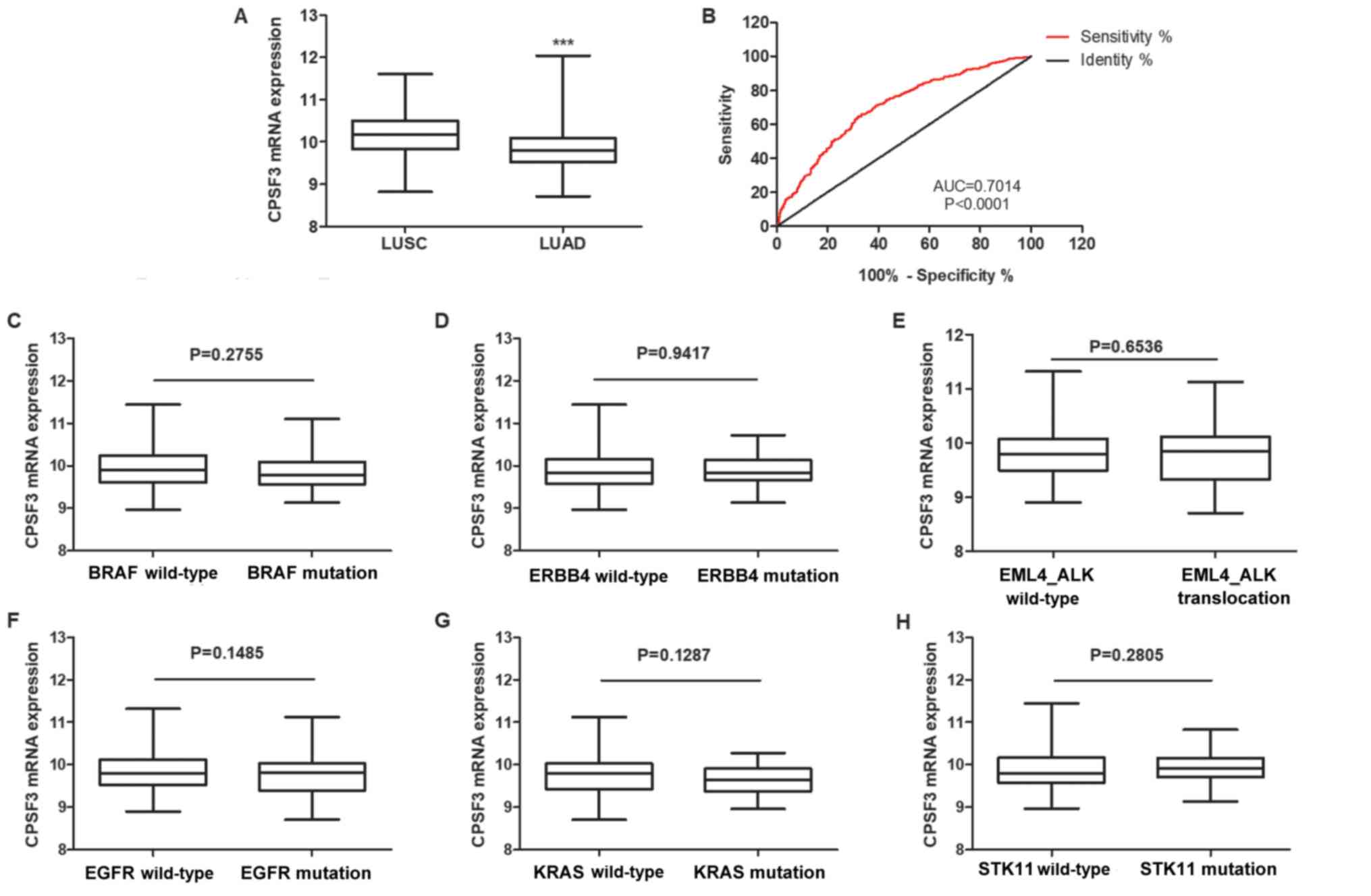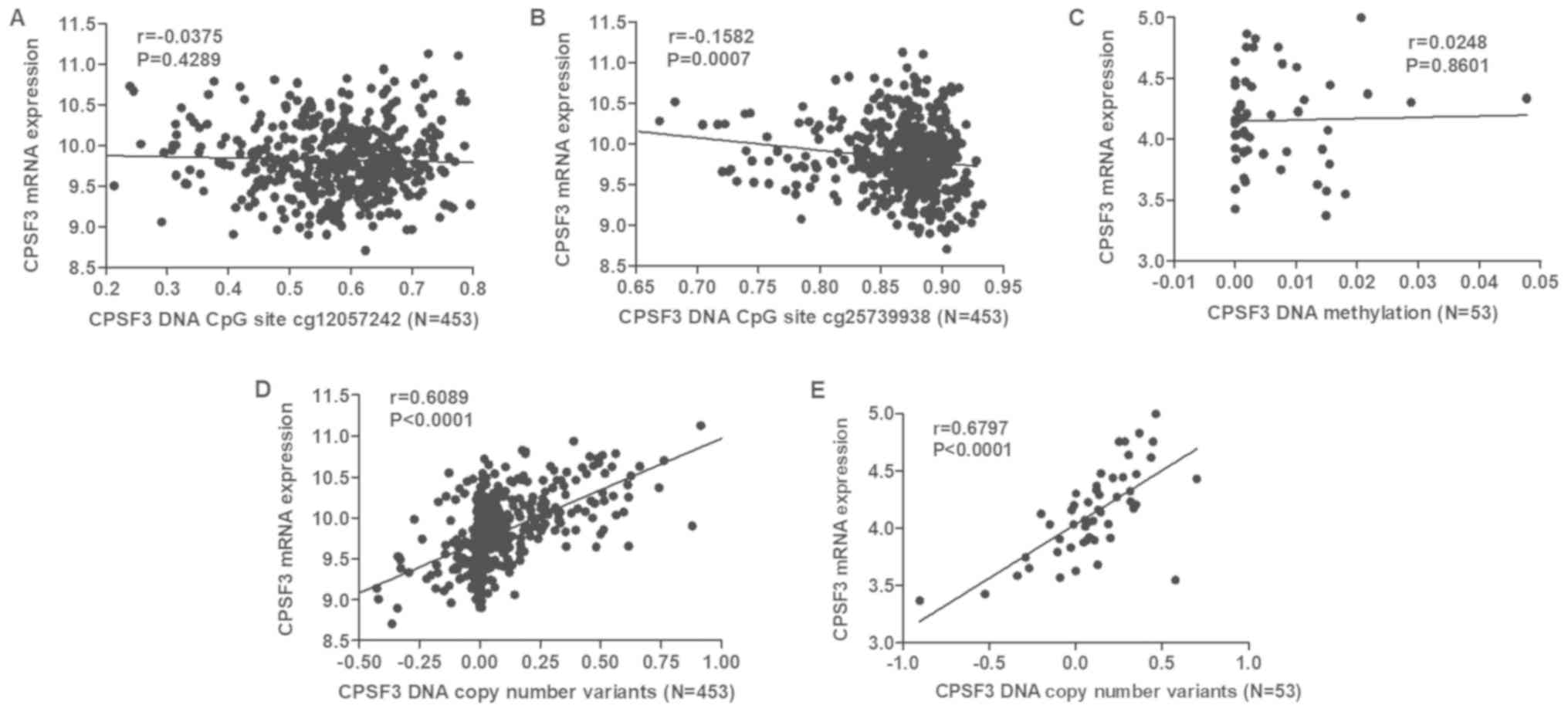|
1
|
Siegel RL, Miller KD and Jemal A: Cancer
statistics, 2018. CA Cancer J Clin. 68:7–30. 2018. View Article : Google Scholar : PubMed/NCBI
|
|
2
|
Thomas A, Liu SV, Subramaniam DS and
Giaccone G: Refining the treatment of NSCLC according to
histological and molecular subtypes. Nat Rev Clin Oncol.
12:511–526. 2015. View Article : Google Scholar : PubMed/NCBI
|
|
3
|
Gadgeel SM, Ramalingam SS and Kalemkerian
GP: Treatment of lung cancer. Radiol Clin North Am. 50:961–974.
2012. View Article : Google Scholar : PubMed/NCBI
|
|
4
|
Daga A, Ansari A, Patel S, Mirza S, Rawal
R and Umrania V: Current drugs and drug targets in Non-small cell
lung cancer: Limitations and opportunities. Asian Pac J Cancer
Prev. 16:4147–4156. 2015. View Article : Google Scholar : PubMed/NCBI
|
|
5
|
Godin-Heymann N, Ulkus L, Brannigan BW,
McDermott U, Lamb J, Maheswaran S, Settleman J and Haber DA: The
T790M ‘gatekeeper’ mutation in EGFR mediates resistance to low
concentrations of an irreversible EGFR inhibitor. Mol Cancer Ther.
7:874–879. 2008. View Article : Google Scholar : PubMed/NCBI
|
|
6
|
Coate LE, John T, Tsao MS and Shepherd FA:
Molecular predictive and prognostic markers in non-small-cell lung
cancer. Lancet Oncol. 10:1001–1010. 2009. View Article : Google Scholar : PubMed/NCBI
|
|
7
|
Yu HA, Sima CS, Huang J, Solomon SB,
Rimner A, Paik P, Pietanza MC, Azzoli CG, Rizvi NA, Krug LM, et al:
Local therapy with continued EGFR tyrosine kinase inhibitor therapy
as a treatment strategy in EGFR-mutant advanced lung cancers that
have developed acquired resistance to EGFR tyrosine kinase
inhibitors. J Thorac Oncol. 8:346–351. 2013. View Article : Google Scholar : PubMed/NCBI
|
|
8
|
Soucheray M, Capelletti M, Pulido I, Kuang
Y, Paweletz CP, Becker JH, Kikuchi E, Xu C, Patel TB, Al-Shahrour
F, et al: Intratumoral heterogeneity in EGFR-Mutant NSCLC results
in divergent resistance mechanisms in response to EGFR tyrosine
kinase inhibition. Cancer Res. 75:4372–4383. 2015. View Article : Google Scholar : PubMed/NCBI
|
|
9
|
Ciuffreda L, Incani UC, Steelman LS,
Abrams SL, Falcone I, Curatolo AD, Chappell WH, Franklin RA, Vari
S, Cognetti F, et al: Signaling intermediates (MAPK and PI3K) as
therapeutic targets in NSCLC. Curr Pharm Des. 20:3944–3957. 2014.
View Article : Google Scholar : PubMed/NCBI
|
|
10
|
Schrank Z, Chhabra G, Lin L, Iderzorig T,
Osude C, Khan N, Kuckovic A, Singh S, Miller RJ and Puri N: Current
molecular-targeted therapies in NSCLC and their mechanism of
resistance. Cancers (Basel). 10(pii): E2242018. View Article : Google Scholar : PubMed/NCBI
|
|
11
|
Goldstraw P, Ball D, Jett JR, Le Chevalier
T, Lim E, Nicholson AG and Shepherd FA: Non-small-cell lung cancer.
Lancet. 378:1727–1740. 2011. View Article : Google Scholar : PubMed/NCBI
|
|
12
|
Misra A and Green MR: From polyadenylation
to splicing: Dual role for mRNA 3′end formation factors. RNA Biol.
13:259–264. 2016. View Article : Google Scholar : PubMed/NCBI
|
|
13
|
Zhang B, Liu Y, Liu D and Yang L:
Targeting cleavage and polyadenylation specific factor 1 via shRNA
inhibits cell proliferation in human ovarian cancer. J Biosci.
42:417–425. 2017. View Article : Google Scholar : PubMed/NCBI
|
|
14
|
Nilubol N, Boufraqech M, Zhang L and
Kebebew E: Loss of CPSF2 expression is associated with increased
thyroid cancer cellular invasion and cancer stem cell population,
and more aggressive disease. J Clin Endocrinol Metab.
99:E1173–E1182. 2014. View Article : Google Scholar : PubMed/NCBI
|
|
15
|
Sung TY, Kim M, Kim TY, Kim WG, Park Y,
Song DE, Park SY, Kwon H, Choi YM, Jang EK, et al: Negative
expression of CPSF2 predicts a poorer clinical outcome in patients
with papillary thyroid carcinoma. Thyroid. 25:1020–1025. 2015.
View Article : Google Scholar : PubMed/NCBI
|
|
16
|
Yi C, Wang Y, Zhang C, Xuan Y, Zhao S, Liu
T, Li W, Liao Y, Feng X, Hao J, et al: Cleavage and polyadenylation
specific factor 4 targets NF-κB/cyclooxygenase-2 signaling to
promote lung cancer growth and progression. Cancer Lett. 381:1–13.
2016. View Article : Google Scholar : PubMed/NCBI
|
|
17
|
Chen W, Qin L, Wang S, Li M, Shi D, Tian
Y, Wang J, Fu L, Li Z, Guo W, et al: CPSF4 activates telomerase
reverse transcriptase and predicts poor prognosis in human lung
adenocarcinomas. Mol Oncol. 8:704–716. 2014. View Article : Google Scholar : PubMed/NCBI
|
|
18
|
Tang Z, Yu W, Zhang C, Zhao S, Yu Z, Xiao
X, Tang R, Xuan Y, Yang W, Hao J, et al: CREB-binding protein
regulates lung cancer growth by targeting MAPK and CPSF4 signaling
pathway. Mol Oncol. 10:317–329. 2016. View Article : Google Scholar : PubMed/NCBI
|
|
19
|
Chen W, Guo W, Li M, Shi D, Tian Y, Li Z,
Wang J, Fu L, Xiao X, Liu QQ, et al: Upregulation of cleavage and
polyadenylation specific factor 4 in lung adenocarcinoma and its
critical role for cancer cell survival and proliferation. PLoS One.
8:e827282013. View Article : Google Scholar : PubMed/NCBI
|
|
20
|
Appiah-Kubi K, Lan T, Wang Y, Qian H, Wu
M, Yao X, Wu Y and Chen Y: Platelet-derived growth factor receptors
(PDGFRs) fusion genes involvement in hematological malignancies.
Crit Rev Oncol Hematol. 109:20–34. 2017. View Article : Google Scholar : PubMed/NCBI
|
|
21
|
Cancer Genome Atlas Research Network, ;
Weinstein JN, Collisson EA, Mills GB, Shaw KR, Ozenberger BA,
Ellrott K, Shmulevich I, Sander C and Stuart JM: The cancer genome
atlas Pan-cancer analysis project. Nat Genet. 45:1113–1120. 2013.
View Article : Google Scholar : PubMed/NCBI
|
|
22
|
Chang JT, Lee YM and Huang RS: The impact
of the Cancer Genome Atlas on lung cancer. Transl Res. 166:568–585.
2015. View Article : Google Scholar : PubMed/NCBI
|
|
23
|
Zhou JD, Wang YX, Zhang TJ, Li XX, Gu Y,
Zhang W, Ma JC, Lin J and Qian J: Identification and validation of
SRY-box containing gene family member SOX30 methylation as a
prognostic and predictive biomarker in myeloid malignancies. Clin
Epigenetics. 10:922018. View Article : Google Scholar : PubMed/NCBI
|
|
24
|
Fisler DA, Sikaria D, Yavorski JM, Tu YN
and Blanck G: Elucidating feed-forward apoptosis signatures in
breast cancer datasets: Higher FOS expression associated with a
better outcome. Oncol Lett. 16:2757–2763. 2018.PubMed/NCBI
|
|
25
|
Chen J, Fu G, Chen Y, Zhu G and Wang Z:
Gene-expression signature predicts survival benefit from
postoperative chemoradiotherapy in head and neck squamous cell
carcinoma. Oncol Lett. 16:2565–2578. 2018.PubMed/NCBI
|
|
26
|
Zhu Z, Yu YP, Shi Y, Nelson JB and Luo J:
CSR1 induces cell death through inactivation of CPSF3. Oncogene.
28:41–51. 2009. View Article : Google Scholar : PubMed/NCBI
|
|
27
|
Tessema M, Yingling CM, Thomas CL, Klinge
DM, Bernauer AM, Liu Y, Dacic S, Siegfried JM, Dahlberg SE,
Schiller JH and Belinsky SA: SULF2 methylation is prognostic for
lung cancer survival and increases sensitivity to topoisomerase-I
inhibitors via induction of ISG15. Oncogene. 31:4107–4116. 2012.
View Article : Google Scholar : PubMed/NCBI
|
|
28
|
Carney BJ, Rangachari D, VanderLaan PA,
Gowen K, Schrock AB, Ali SM and Costa DB: De novo ERBB2
amplification causing intrinsic resistance to erlotinib in
EGFR-L858R mutated TKI-naive lung adenocarcinoma. Lung Cancer.
114:108–110. 2017. View Article : Google Scholar : PubMed/NCBI
|
|
29
|
Gu FF, Zhang Y, Liu YY, Hong XH, Liang JY,
Tong F, Yang JS and Liu L: Lung adenocarcinoma harboring
concomitant SPTBN1-ALK fusion, c-Met overexpression, and HER-2
amplification with inherent resistance to crizotinib, chemotherapy,
and radiotherapy. J Hematol Oncol. 9:662016. View Article : Google Scholar : PubMed/NCBI
|
|
30
|
Pu W, Geng X, Chen S, Tan L, Tan Y, Wang
A, Lu Z, Guo S, Chen X and Wang J: Aberrant methylation of CDH13
can be a diagnostic biomarker for lung adenocarcinoma. J Cancer.
7:2280–2289. 2016. View Article : Google Scholar : PubMed/NCBI
|















